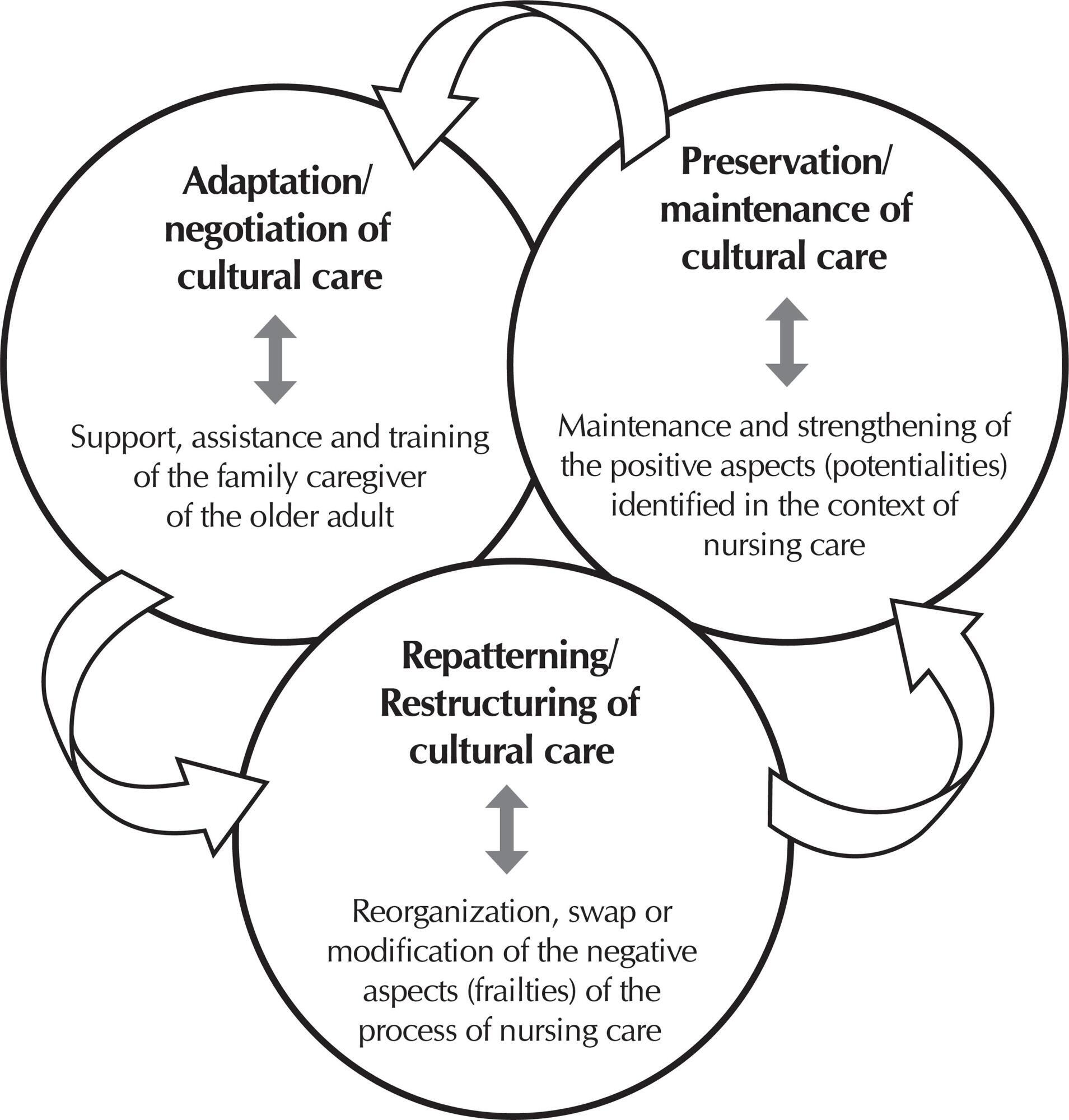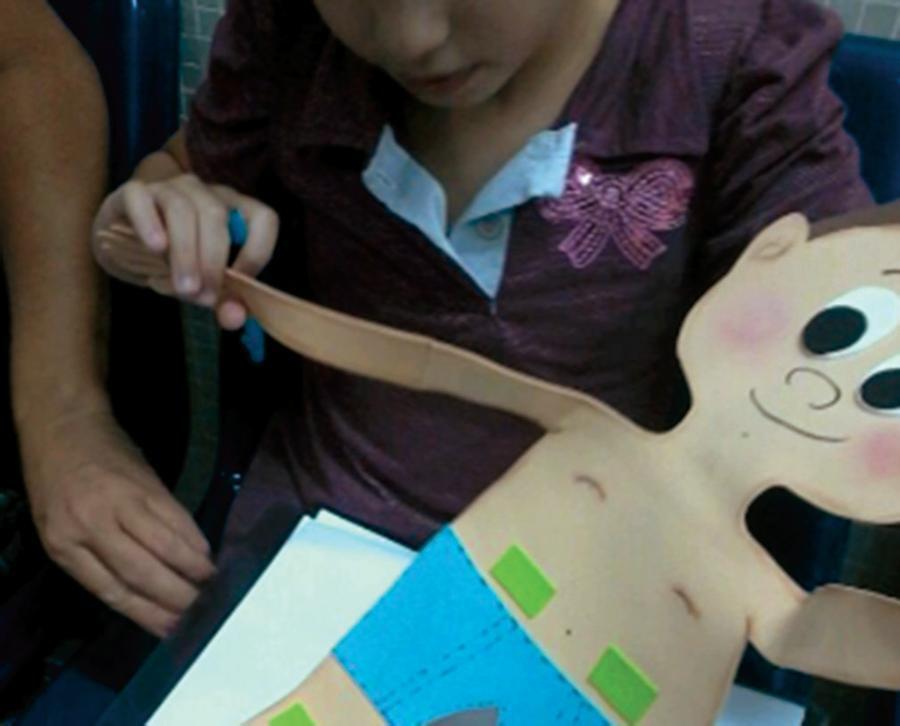-
ORIGINAL ARTICLE
Production of knowledge based on the Theory of Culture Care Diversity and Universality: documental research
Revista Brasileira de Enfermagem. 2021;74(3):e20200732
06-09-2021
Resumo
ORIGINAL ARTICLEProduction of knowledge based on the Theory of Culture Care Diversity and Universality: documental research
Revista Brasileira de Enfermagem. 2021;74(3):e20200732
06-09-2021DOI 10.1590/0034-7167-2020-0732
Visualizações0Ver maisABSTRACT
Objectives:
To analyze the abstracts that relate nursing to the Theory of Culture Care Diversity and Universality, published in the annals of the main national scientific events in the category, over a 12-year period.
Methods:
documental research carried out in the annals of the Brazilian Nursing Congress and the National Nursing Research Seminar. Data collection took place from July/2018 to June/2019 using a form. Data was analyzed using descriptive statistics and content analysis.
Results:
99 studies were analyzed, and three categories emerged: Cultural diversity, emic perspective, and cultural context: possibilities for applying the theory; Incongruencies and peculiarities of the care sectors: limitations of the application of the theory; Knowledge production to improve care: implications for professional nursing practice.
Final Considerations:
the investigated scientific production enabled the construction of knowledge of cultural aspects related to nursing care and showed similarities and variations in care practices.
-
REFLECTIVE
The belief in health in the adoption of COVID-19 prevention and control measures
Revista Brasileira de Enfermagem. 2021;74(suppl 1):e20200576
02-15-2021
Resumo
REFLECTIVEThe belief in health in the adoption of COVID-19 prevention and control measures
Revista Brasileira de Enfermagem. 2021;74(suppl 1):e20200576
02-15-2021DOI 10.1590/0034-7167-2020-0576
Visualizações0Ver maisABSTRACT
Objective:
Reflect, in the light of the Health Belief Model, on the adoption of behavioral measures in the context of COVID-19.
Methods:
Theoretical-reflective essay, based on the Health Belief Model, to reflect on adherence to preventive behaviors in the pandemic of COVID-19.
Results:
Adherence to preventive behaviors is strongly influenced by socioeconomic, territorial, political and individual factors in the face of critical health situations. In addition, the spread of false news modulates the thinking and execution of behavioral actions in the population.
Final Considerations:
It is necessary to understand the importance of health communication processes and the use of tools aimed at responsible human behavior and engaged in the adoption of a preventive posture.
-
ORIGINAL ARTICLE
Beliefs, values and practices of families in the care of hospitalized children: subsidies for nursing
Revista Brasileira de Enfermagem. 2020;73(suppl 4):e20190553
11-11-2020
Resumo
ORIGINAL ARTICLEBeliefs, values and practices of families in the care of hospitalized children: subsidies for nursing
Revista Brasileira de Enfermagem. 2020;73(suppl 4):e20190553
11-11-2020DOI 10.1590/0034-7167-2019-0553
Visualizações0Ver maisABSTRACT
Objective:
To know the beliefs, values and practices of families in the care of hospitalized children.
Method:
Qualitative study developed at the Pediatrics Unit of a University Hospital in southern Brazil through non-participant observation, participant observation and interview with children’s family members. The methodological framework of Ethnonursing was adopted. Data were coded, classified and scrutinized to identify saturation of similar or different ideas and patterns, and recoded by making theoretical formulations and recommendations.
Results:
Beliefs, values and practices of families depend on cultural references and are manifested in the care with feeding, clothing and hygiene, maintenance of sleep and rest, presence, care with medication and exercise of religious belief.
Conclusion:
Family members care for the hospitalized child based on their cultural reference and it is important that nurses take this aspect into consideration during care practice. Cultural care aggregates knowledge and can be considered a new paradigm for nursing care that allows an affective, reflective, human, empathic relationship between nurse/child/family.
-
EXPERIENCE REPORT
Collective memory of umbilical cord stump care: an educational experience
Revista Brasileira de Enfermagem. 2019;72(suppl 3):360-364
12-13-2019
Resumo
EXPERIENCE REPORTCollective memory of umbilical cord stump care: an educational experience
Revista Brasileira de Enfermagem. 2019;72(suppl 3):360-364
12-13-2019DOI 10.1590/0034-7167-2018-0735
Visualizações0Ver maisABSTRACT
Objective:
To report the educational experience with pregnant women considering the recovery of collective memory inherited from the care for the umbilical cord stump provided by grandmothers.
Method:
This case study was based on collective memory and resulted from a workshop with 20 pregnant women from a Basic Health Unit in a city in the inland of Bahia.
Results:
The study showed that pregnant women’s grandmothers are significant in the stump care process because they transmit their memories pervaded by beliefs, myths and superstitions that, although should be respected by nurses and other health professionals, can sometimes contribute to the occurrence of omphalitis and neonatal tetanus.
Final considerations:
The results indicated the need for raising awareness and education of all persons involved in this care, especially grandmothers, so that they can reflect on the risks and damage that certain empirical knowledge can cause to the health of the umbilical cord.
-
RESEARCH
Family caregiver of older adults and Cultural Care in Nursing care
Revista Brasileira de Enfermagem. 2018;71(3):959-966
01-01-2018
Resumo
RESEARCHFamily caregiver of older adults and Cultural Care in Nursing care
Revista Brasileira de Enfermagem. 2018;71(3):959-966
01-01-2018DOI 10.1590/0034-7167-2017-0105
Visualizações0Ver maisABSTRACT
Objective:
To analyze the experiences of family caregivers of dependent older adults, who show performance overload and emotional distress, using the Theory of Culture Care.
Method:
Qualitative study with nine caregivers of home care dependent older adults, based on Grounded Theory.
Results:
The findings allowed the identification of potentialities and frailties in the context of family home care and subsidizing the construction of a theoretical scheme resulting from the analysis of possibilities of the nursing care practice according to the culture, through the three modes of action: maintenance, adjustment and repatterning of cultural care.
Final considerations:
Respecting the cultural values and family beliefs, the nurse can help to institute mutually established changes, promoting a better quality in the nursing care relationship and a relief to the strain of the role of the caregiver.

-
RESEARCH
Being born at home is natural: care rituals for home birth
Revista Brasileira de Enfermagem. 2018;71(suppl 3):1247-1256
01-01-2018
Resumo
RESEARCHBeing born at home is natural: care rituals for home birth
Revista Brasileira de Enfermagem. 2018;71(suppl 3):1247-1256
01-01-2018DOI 10.1590/0034-7167-2017-0541
Visualizações0Ver maisABSTRACT
Objective:
To be aware of the care rituals developed by families when preparing for home birth during the gestational process.
Method:
Qualitative and ethnographic research developed with families during the gestational process. We adopted the observation-participation-reflection model, and the analysis was performed according to ethnonursing.
Results:
Care rituals are related to the choice of home as a place for childbirth, being characterized as a family's rite of separation to experience this process. Other care rituals involved the preparation of the family and the eldest child as well as the home, the body, and the mind of the pregnant woman, and the choice of destination of the placenta.
Final considerations:
We must understand the birth process beyond the biological perspective, considering women and their family as a whole, within a cultural context with their beliefs and values.
-
RESEARCH
Instructional therapeutic toy in the culture care of the child with diabetes type 1
Revista Brasileira de Enfermagem. 2018;71(suppl 3):1334-1342
01-01-2018
Resumo
RESEARCHInstructional therapeutic toy in the culture care of the child with diabetes type 1
Revista Brasileira de Enfermagem. 2018;71(suppl 3):1334-1342
01-01-2018DOI 10.1590/0034-7167-2017-0260
Visualizações0Ver maisABSTRACT
Objective:
To analyze the experience of the child with diabetes type 1 in the care related to the techniques of glycemic monitoring and insulin application by use of instructional therapeutic toy, in accordance with the culture care.
Method:
Qualitative study with premise of the ethnonursing carried out in secondary public service of reference in the treatment of diabetes, in the city Fortaleza, Ceará State, between January and November of 2014, among 26 school-age children. Based on the Observation, Participation, Reflection Enabler, were developed educational activities using instructional therapeutic toy.
Results:
The children expressed doubts regarding the insulin therapy and the glycaemia checking. They also were interested in the orientations mediated by means of the therapeutic toy in the culture care. They asked about the rotation, location and administration of the insulin. Some children asked for the syringes to play and learn how to inject it in the dolls.
Conclusion:
To bring in this activity promoted approximation and effective communication with the child in the educational approach, increasing its ability in the self care.





